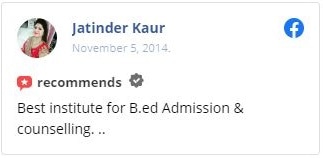MBBS Admission from Top Universities: Admission Process, Eligibility Criteria, Syllabus, Scope, Fees, Career Opportunities.
MBBS Admission: Overview
Introduction The Bachelor of Medicine, Bachelor of Surgery (MBBS) is a prestigious undergraduate degree for aspiring medical professionals. Admission to MBBS programs is highly competitive and involves several stages, including entrance exams, interviews, and documentation.
Key Highlights
Course Duration:
- The MBBS program typically lasts 5 to 6 years, depending on the country and institution. This includes both theoretical coursework and practical clinical training.
- The MBBS program typically lasts 5 to 6 years, depending on the country and institution. This includes both theoretical coursework and practical clinical training.
Eligibility Criteria:
- Candidates usually need to have completed their higher secondary education (12th grade) with a focus on science subjects, particularly Biology, Chemistry, and Physics.
- A minimum percentage requirement (often around 50-60%) is usually set for eligibility.
Entrance Exams:
- Admission is commonly based on performance in entrance examinations, which may include:
- NEET (National Eligibility and Entrance Test) in India
- MCAT (Medical College Admission Test) in the USA
- Various other country-specific tests
- Admission is commonly based on performance in entrance examinations, which may include:
Application Process:
- The application process typically includes filling out forms, submitting academic transcripts, entrance exam scores, and letters of recommendation. A personal statement or essay may also be required.
- The application process typically includes filling out forms, submitting academic transcripts, entrance exam scores, and letters of recommendation. A personal statement or essay may also be required.
Interview:
- Some institutions may conduct interviews to assess candidates’ suitability for the medical field.
- Some institutions may conduct interviews to assess candidates’ suitability for the medical field.
Funding and Scholarships:
- Many universities offer scholarships and financial aid options to assist students with tuition fees. Prospective students should explore these opportunities.
- Many universities offer scholarships and financial aid options to assist students with tuition fees. Prospective students should explore these opportunities.
Career Opportunities Graduates with an MBBS degree can pursue various career paths, including:
- Clinical Practice: Working as a doctor in hospitals or clinics.
- Specialization: Pursuing further education in specialized fields such as surgery, pediatrics, cardiology, etc.
- Research: Engaging in medical research or academia.
- Public Health: Working with governmental and non-governmental organizations on health policies and programs.
MBBS: Eligibility Criteria
The eligibility criteria for admission to an MBBS program can vary by country and institution. However, there are some common requirements that most universities and colleges follow. Here’s a comprehensive overview:
1. Educational Qualifications:
- Higher Secondary Education: Candidates must have completed their 10+2 education (or equivalent) with a strong emphasis on science subjects.
- Subjects Required: The core subjects typically include:
- Biology
- Chemistry
- Physics
- Some institutions may also require Mathematics.
2. Minimum Percentage:
- Most universities have a minimum percentage requirement in the qualifying examination, usually around 50-60% in the science subjects. For reserved category students, the cutoff may be lower.
3. Entrance Exams:
- Candidates must qualify for specific entrance examinations, which can include:
- NEET (National Eligibility cum Entrance Test) in India
- MCAT (Medical College Admission Test) in the USA
- Other country-specific medical entrance exams (e.g., UCAT, GAMSAT in the UK).
4. Age Limit:
- Many universities set an age limit for candidates, typically between 17 and 25 years at the time of admission. This can vary by institution and country.
5. English Language Proficiency:
- For international students or non-native speakers, proficiency in English may be required. Tests like IELTS or TOEFL might be necessary to demonstrate language skills.
6. Documentation:
- Candidates need to provide relevant documentation, which may include:
- Academic transcripts
- Entrance exam scores
- Proof of identity and nationality
- Letters of recommendation (if required)
7. Medical Fitness:
- Some institutions may require a medical fitness certificate to ensure that candidates are physically fit for the demands of a medical career.
MBBS: Fees and Duration
Duration of MBBS Programs
The duration of MBBS programs can vary based on the country and specific institution, but here’s a general outline:
Standard Duration:
- Most MBBS programs last between 5 to 6 years. This typically includes:
- Pre-clinical Phase: The first 2-3 years focus on basic medical sciences, including subjects like Anatomy, Physiology, and Biochemistry.
- Clinical Phase: The subsequent 2-3 years involve practical training in hospitals and clinics, where students gain hands-on experience in various medical specialties.
- Most MBBS programs last between 5 to 6 years. This typically includes:
Internship:
- Many programs require a mandatory internship (clinical rotation) of about 1 year following the completion of the MBBS course. This practical training is essential for gaining real-world experience.
- Many programs require a mandatory internship (clinical rotation) of about 1 year following the completion of the MBBS course. This practical training is essential for gaining real-world experience.
Fees for MBBS Programs
The fees for MBBS programs can vary significantly depending on the country, institution, and whether it is a public or private university.
Tuition Fees:
- Public Universities: In many countries, public institutions offer more affordable tuition. Fees can range from $5,000 to $20,000 per year.
- Private Universities: Tuition at private institutions can be significantly higher, often ranging from $20,000 to $70,000 per year.
Additional Costs:
- Application Fees: Typically between $50 and $200 per application, depending on the institution.
- Books and Supplies: Estimated costs for books and materials can range from $500 to $1,500 annually.
- Living Expenses: Depending on the location, living costs (housing, food, transportation) can vary widely, often ranging from $10,000 to $20,000 per year.
Financial Aid and Scholarships:
- Many universities offer scholarships, grants, and financial aid options to assist students with tuition costs. Prospective students should explore available funding opportunities.
MBBS Admission Process
Admission to MBBS is done through entrance exams and on a merit basis. Depending on how you perform in entrance exams along with 50% marks on Boards, the college is decided.
- Entrance Exams
Entrance exams are the most common form of receiving admissions to colleges and universities. To receive an MBBS degree, you need to score well in entrance exams to get enrolled in high ranking universities.
- Merit-Based
There are several colleges and medical schools that provide admissions to students on the basis of their marks secured in class 12. Often, they select the students on the basis of their cut off lists as well. However, the number of such colleges is quite less in the country.
The NEET-UG or National Eligibility cum Entrance Exam for Undergraduate Courses is the common all India test for entry in all the medical colleges and universities.
Semester Wise Syllabus of MBBS
SEMESTER 1
- Fundamentals of Disease and Treatment
- Introduction to Medical Practice 1
- Locomotor System
- Cell Biology
- Introduction to Embryology and Histology
- Introduction to Molecular Medicine
SEMESTER 2
- Health and environment
- Healthcare Concepts
- Basic Hematology
- Respiratory System
- Neuroscience 1 – peripheral system
SEMESTER 3
- General Pathology
- Neoplasia
- Hereditary Disorder
- Environmental Pathology
- Immunity
- Nutrition Disorders
SEMESTER 4
- Systemic pathology
- Haematology
- Alimentary system
- Common symptoms and signs
- Cardiovascular system
SEMESTER 5
- Clinical pathology
- General pathology
- Special pathology
- Immunopathology
- Growth disturbance and neoplasia
- Infectious diseases
SEMESTER 6
- Epidemiology of communicable diseases
- Reproductive health and child health
- Epidemiology of non-communicable diseases
SEMESTER 7
- Geriatric disease
- Infectious disease
- Nutritional disease
- Haematology and oncology
- The disease of the immune system, connective tissues and joints
SEMESTER 8
- Metabolic and Bone Disease
- Endocrine Disease
- Nervous System
- Brain death, organ preservation, organ donation
- Emergency medicine and critical care
SEMESTER 9
- Environmental disorders, snake bites, and poisoning
- Kidney disease
- Nervous system
- Emergency medicine and critical care
MBBS: Future and Scope of MBBS
MBBS students are highly focused and require hard work to complete their journey. It takes a lot of effort to inculcate the entire knowledge about the human body and its functioning. MBBS students have the scope of employment opportunities in both the government and private sectors. Ranging from medical centres, healthcare facilities, laboratories to biomedical companies and emergency rooms, every department holds an opportunity for the students.
Career Opportunities
Medical Surgeons
Medical Surgeons are responsible for conducting the surgeries, providing the right treatment, and medical care to the patients. The surgeon, in simple terms, is usually the surgical team leader. Medical surgeons work and ensure that collaboration, coordination, and harmony is maintained among all the other leaders of the surgical team. The surgeons generally require another surgeon or an assistant to themselves, anesthesiologist, and nursing staff in the operating theatre.
General Physician
As an MBBS graduate, you can start working as a general physician who can diagnose, treat, and cure patients’ medical health issues. The physician treats the disease in early stages and refers it to a specialized medical practitioner if the conditions do not stabilize.
Paediatrician
Paediatrician refers to a doctor who specializes in treating kids and diagnosing their health issues. They know about the pattern of their overall growth and development and work in accordance with it. They perform necessary and detailed tests on infant as well as young children. The evaluation and observation of a child’s health is done by a pediatrician. They undertake the queries of both parents and children and prescribe the required medicines and correct guidance to them.






























